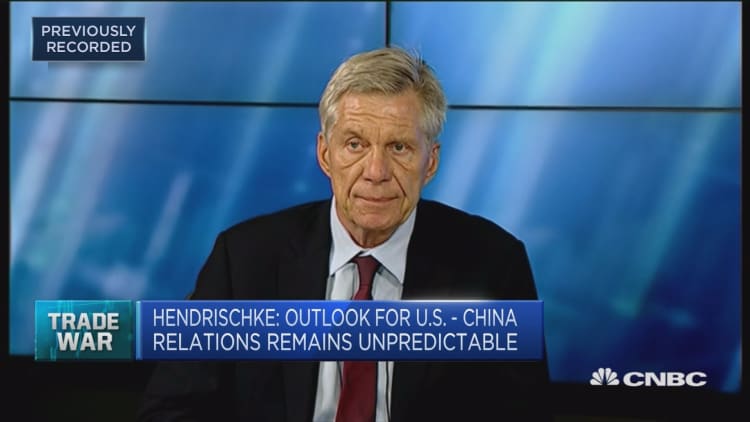
Beijing could target soybeans to retaliate against any punitive trade action from the U.S., but it's unlikely to do that just to counter heavy U.S. tariffs on steel and aluminum, experts said.
U.S. is a major producer and exporter of soybeans globally, and China is the top buyer of these American oilseeds.
"Half of U.S. soybeans exports goes to China. If China hits back on soybeans, it's really going to hurt," said Haiyan Wang, a professor at INSEAD in Washington D.C.
The grain markets were on edge about a tit-for-tat between the world's two largest economies, sending prices of soy futures up on Friday.
On the Dalian Commodity Exchange, soybean futures rose about 2 percent while soybean meal futures rose almost 4 percent by midday. Prices of soybean meal, a feed product, also jumped to their highest since July 2016 on the Chicago Board of Trade.
Before Trump's shock move, prices were already supported by supply concerns in the U.S., Brazil and Argentina.
However, a trade war may not be the best move at this point, Wang added.
"It's the question of a measured response," said Hans Hendrischke, professor of Chinese business and management at the University of Sydney Business School.
China steel and aluminum products are just a small percentage of total U.S. imports.
So it's unlikely that China will retaliate against what is a "fairly small type of sanction" against steel and aluminum imports with a broad counter-punch on American soybeans, Hendrischke said.
The world's second largest economy is also unlikely to do that just yet as President Donald Trump's announcement on the steel and aluminum tariffs does not target China alone, said Jake Parker, vice president of China operations at the U.S.-China Business Council.
But Beijing had previously indicated it will take action against the soybean and corn industries in retaliation for any U.S. tariffs on China.

China's Ministry of Commerce said in early February it was investigating whether to limit imports of U.S. sorghum, a cereal grain used to feed livestock, in response to previous tariffs from the White House on solar panels and washing machines — also a move that targeted countries other than China.
"They didn't issue any new tariffs, they didn't issue any new countervailing duties, but they did offer a threatening message that that was something that could be a risk going forward," Parker said.
So Beijing may save any action against U.S. soybean imports, for more targeted measures against the East Asian nation.
"Soybeans are obviously a very large and important import for the United States. It's critically important from a political perspective for President Trump," said Parker, referring to one of the president's key support base — the farm states.

